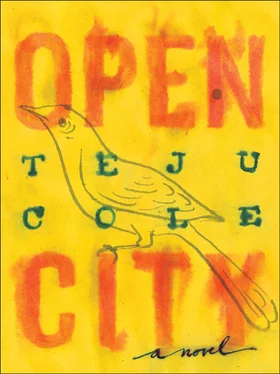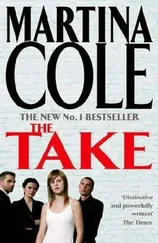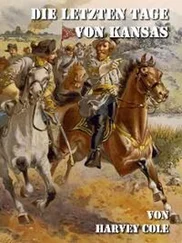At the grocery store, I bought bread, eggs, and beer, and next door, at the Jamaican place, I bought goat curry, yellow plantains, and rice and peas to take home. On the other side of the grocery store was a Blockbuster; though I had never rented anything from there, I was startled to see a sign announcing it, too, was going out of business. If Blockbuster couldn’t make it in an area full of students and families, it meant that the business model had been fatally damaged, that the desperate efforts they had made recently, and which I now recalled, of lowering rental prices, launching an advertising blitz, and abolishing late fines, had all come too late. I thought of Tower Records — a connection I couldn’t help making, given that both companies had for a long time dominated their respective industries. It wasn’t that I felt sorry for these faceless national corporations; far from it. They had made their profits and their names by destroying smaller, earlier local businesses. But I was touched not only at the passage of these fixtures in my mental landscape, but also at the swiftness and dispassion with which the market swallowed even the most resilient enterprises. Businesses that had seemed unshakable a few years previously had disappeared in the span, seemingly, of a few weeks. Whatever role they played passed on to other hands, hands that would feel briefly invincible and would, in their turn, be defeated by unforeseen changes. These survivors would also come to be forgotten.
As I approached the apartment building with my bags, I saw someone I knew: the man who lived in the apartment right next to mine. He was coming into the building at the same time, and he held the door open for me. I did not know him well, in fact hardly knew him at all, and I had to think for a moment before I remembered his name. He was in his early fifties, and had moved in the previous year. The name came to me: Seth.
I had spoken briefly with Seth and his wife, Carla, when they first moved in, but hardly at all since. He was a retired social worker, following a lifelong dream to return to school for a second degree, in Romance languages. I saw him only about once a month, just outside the building or near the mailboxes. Carla, whom I had met only twice after they moved in, was also retired; she had been a school principal in Brooklyn, and they still kept a home there. Once, when my girlfriend, Nadège, and I had a day off together, Seth had knocked on my door to ask if I was playing guitar. When I said that I didn’t play, he explained that he was often home in the afternoons, and that the noise from my speakers (it must be your speakers, he said, though it sounds like live music) sometimes disturbed him. But he added, with genuine warmth in his voice, that they were always away on weekends, and that we were free to be loud from Friday afternoons onward if we so wished. I felt bad about it, and apologized. After that, I had made a conscious effort not to trouble them, and the issue hadn’t come up again.
Seth held the door open. He, too, had been shopping, and carried plastic bags. Getting cold, he said. His nose and earlobes were pink, and his eyes watered. Yes, yes, it is, in fact I thought about taking a cab from 125th. He nodded, and we stood silently for a while. When the elevator arrived, we got in. We got off on the seventh floor, and as we walked down the hallway, our nylon bags rustling, I asked him if they still got away on the weekends. Oh yes, every weekend, but it’s just me now, Julius. Carla died in June, he said. She had a heart attack.
I was stunned into momentary confusion, as if I had just been told something that wasn’t possible. I’m so sorry, I said. He tilted his head, and we kept walking down the hallway. I asked if he had been able to take some time off from school. No, he said, I’ve just continued right through. I placed my hand on his shoulder, for a moment, and said again how sorry I was, and he thanked me. He seemed vaguely embarrassed, having to deal with my belated shock at what, for him, was far more personal but also much older news. Our keys clinked, and he entered apartment twenty-one, and I twenty-two. I closed the door behind me, and heard his close, too. I didn’t switch on the light. A woman had died in the room next to mine, she had died on the other side of the wall I was leaning against, and I had known nothing of it. I had known nothing in the weeks when her husband mourned, nothing when I had nodded to him in greeting with headphones in my ears, or when I had folded clothes in the laundry room while he used the washer. I hadn’t known him well enough to routinely ask how Carla was, and I had not noticed not seeing her around. That was the worst of it. I had noticed neither her absence nor the change — there must have been a change — in his spirit. It was not possible, even then, to go knock on his door and embrace him, or to speak with him at length. It would have been false intimacy.
I finally switched the light on and moved into my apartment. I imagined Seth tussling with his French and Spanish homework, conjugating verbs, laboring on translations, memorizing vocabulary lists, doing composition exercises. As I put away my groceries, I tried to remember when, exactly, it was that he had knocked on my door to ask if I played guitar. Eventually I satisfied myself that it was before, and not after, his wife’s death. I felt a certain sense of relief at this, which was taken over almost immediately by shame. But even that feeling subsided; much too quickly, now that I think of it.
I was on the phone with Nadège, a few nights later, when I heard noises from far off, noises that were hardly audible to begin with, but that within a few seconds drew closer and became louder. A single voice, a woman’s voice, shouted, and a crowd responded. After this had happened a few times, I could identify the crowd as mostly or entirely female. Several whistles pierced the air, but it was not a festive sound; that much I could tell even before I opened my window and looked out. It was something more serious. There were drums, and as the crowd approached, the drums took on an increasingly martial tone (my mind went to a hunting party flushing rabbits out of their holes). It was late, well past ten. Several of my neighbors across the street had leaned out of their windows; we all craned our necks toward Amsterdam Avenue. The voice leading the crowd became even louder, but the words did not resolve into meaning, and most of the crowd, marching toward us, remained obscured by darkness. Then, as the crowd, all of them young women, passed under the streetlamps, their chanting became clearer. We have the power, we have the might , the solitary voice called. The answer came: The streets are ours, take back the night .
The crowd, several dozen strong but tightly packed, passed under my window. From several floors above, I watched them, as their faces came in and out of the spotlights of the streetlamps. Women’s bodies, women’s lives, we will not be terrorized . I shut the window. It was only a little bit cooler outside than it was in the apartment. Earlier that evening, I had gone walking in Riverside Park, from 116th Street down to the Nineties and back. It wasn’t cold yet, and the entire time I was out in the park — as I watched the dogs and their owners, all of whom seemed to have converged on the same paths as I had, an endless stream of pit bulls, Jack Russells, Alsatians, Weimaraners, mutts — I wondered why it was still so warm in the middle of November.
Coming up the hill to my place, just as I crossed the corner of 121st, I saw my friend. He lived only a few blocks away, and had been out shopping for groceries. I hailed him, and we spoke briefly. He was a young professor in the Earth Sciences Department, four years into the uncertain seven-year journey to tenure. His interests were broader than his professional specialty suggested, and this was part of the basis for our friendship: he had strong opinions about books and films, opinions that often went against mine, and he had lived for two years in Paris, where he’d acquired a taste for fashionable philosophers like Badiou and Serres. In addition, he was an avid chess player, and an affectionate father to a nine-year-old girl who mostly lived with her mother on Staten Island. We both regretted that the demands of work kept us from spending as much time together as we would have liked.
Читать дальше












